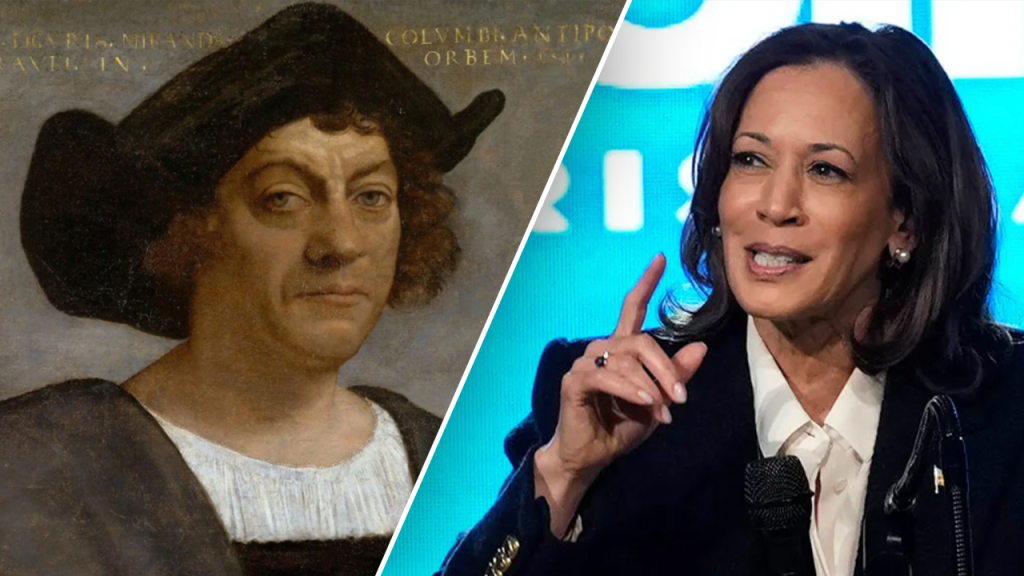The Trump campaign criticized Vice President Kamala Harris for her support of renaming Columbus Day to Indigenous People’s Day, accusing her of wanting to “cancel American traditions.” Harris expressed her support for renaming the holiday in 2019, citing the need to acknowledge the harm caused by slavery, Jim Crow laws, and institutionalized racism in the United States. She also emphasized the importance of addressing the mistreatment of indigenous Americans and pledged her support for renaming the holiday.
Columbus Day is a federal holiday that commemorates Italian explorer Christopher Columbus’ arrival in the Americas in 1492. However, activists have called for the day to be disassociated from Columbus, arguing that it celebrates colonialism and genocide of indigenous people. They advocate for celebrating Native Americans instead and have worked to remove Columbus statues from various cities, including during the riots of 2020.
President Biden was the first president to formally recognize Indigenous Peoples’ Day in 2021, acknowledging the devastation caused by European explorers to tribal nations. Vice President Harris has consistently celebrated Indigenous Peoples’ Day over Columbus Day since taking office, emphasizing the need to confront the country’s shameful past and address the ongoing impact on native communities. Activists and politicians have differing views on how to commemorate the day and its significance in American history.
The Trump campaign accused Harris of being a “stereotypical leftist” who not only supports raising taxes and defunding the police but also wants to erase American traditions like Columbus Day. They vowed to protect Christopher Columbus’ legacy and preserve the holiday from what they consider radical leftists like Harris who seek to rewrite the nation’s history. The debate over renaming Columbus Day reflects broader discussions about historical representation, cultural heritage, and how to properly acknowledge and honor different aspects of American history.
Despite the criticism from the Trump campaign, Harris and other advocates for renaming Columbus Day argue that it is essential to acknowledge the country’s past sins and take concrete steps towards rectifying historical injustices. By recognizing Indigenous Peoples’ Day, they seek to center indigenous communities and their experiences, highlighting the need to address ongoing issues related to land rights, cultural preservation, and social equity. The debate over Columbus Day reflects larger questions about national identity, historical memory, and the ongoing impact of colonialism on indigenous peoples in the United States.
As the country continues to grapple with issues of racial justice, historical reckoning, and national identity, the question of how to commemorate holidays like Columbus Day remains contentious. Activists, politicians, and the public have differing opinions on the significance of renaming the holiday, with some advocating for Indigenous Peoples’ Day as a way to confront historical injustices and others defending Columbus Day as a tradition worth preserving. The debate reflects broader discussions about representation, memory, and the complexities of American history, highlighting the ongoing need for dialogue, reflection, and action towards a more inclusive and equitable society.


